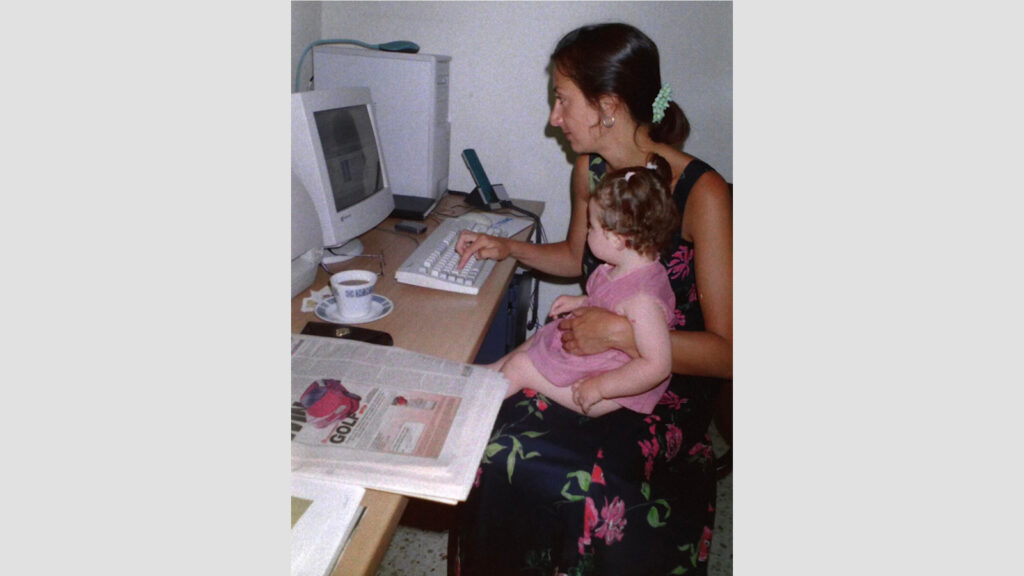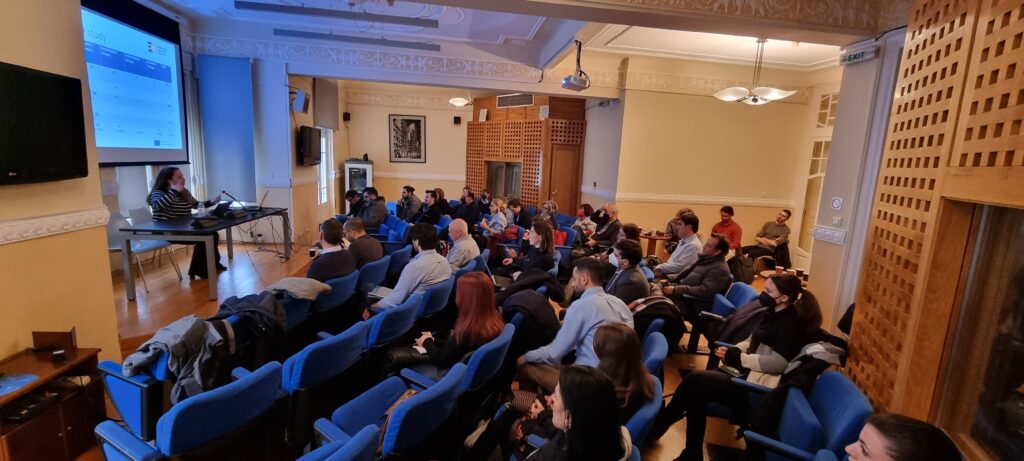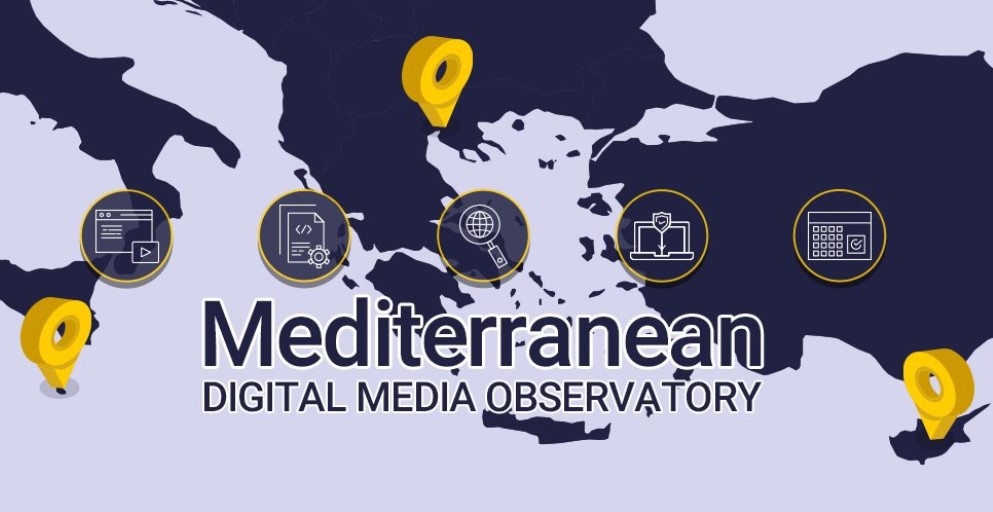Photo: Daphne Caruana Galizia with Megan Mallia in 2001.
Credit: Mandy Mallia
16th October 2024
By Megan Mallia
Malta has a major disinformation problem as a consequence of a highly polarised political environment, and the problem got worse in the years following the assassination of investigative journalist Daphne Caruana Galizia on 16th October 2017.
My aunt wasn’t born a journalist. But my grandparents – her parents – said she was born curious. She was a bookworm the moment she learnt to read, and as a school girl she hid novels inside the covers of her textbooks to read unseen in class. And of course, she loved to write.
Daphne started out in journalism in her twenties, the mother of three young sons, becoming Malta’s first named independent columnist and its first woman columnist.
This was a double shock, perhaps, for a country unused to writers, particularly women ones, expressing themselves freely without the anonymity of pseudonyms. And Daphne didn’t mince her words. She called a spade a spade.
The shock translated itself into an ugly reality. Over the years, Daphne’s house was hit by arson attacks, several of her family dogs were killed, her bank accounts were frozen, and she was repeatedly and vexatiously sued for libel almost exclusively by government and Opposition members of parliament.
The attacks got worse as Daphne’s investigations dug deeper into the corruption taking hold of the country.
There were also attempts to turn the public against her in more overt ways. She was branded ‘is-saħħara’ (‘the witch’) by Labour Party lackeys, and labelled ‘biċċa blogger’ (loosely translated as ‘a mere blogger’) by the former leader of the Opposition.
She was abused verbally by direct message, on social media and in the street in response to her reporting, and the vilification continues even today, seven years after she was murdered by a car bomb mere metres from her home.
Daphne was, in fact, the victim of a fully-fledged disinformation campaign aimed at discrediting her work and wearing her down, portraying her as a malicious figure out to get the ‘gods’ of politics because party politics, in Malta, really is like a religion. In 2021, a public inquiry report stated that ‘following the 2013 election, individuals who were directly involved in the attack campaigns against the assassinated journalist took on public official positions, many of whom within the Office of the Prime Minister’.
In 2018, an investigation by an online journalism platform The Shift unearthed coordinated attacks on Daphne, her family and anti-corruption activists in secret Facebook groups of Labour Party supporters. Amongst the groups’ thousands of members were the then-prime minister, several of his senior staff, and Malta’s then-president.
Much of Malta’s disinformation revolves around issues and stories uncovered by Daphne, which continue to have an impact. They killed a journalist but failed to silence her. So they try to kill her memory.
Today, 16th October, marks seven years since Daphne was assassinated for her journalism. As a consortium working to counter disinformation and promote a healthier information environment, the Mediterranean Digital Media Observatory is inspired by the work of journalists like Daphne and continues to demand full justice for her and for her stories.


